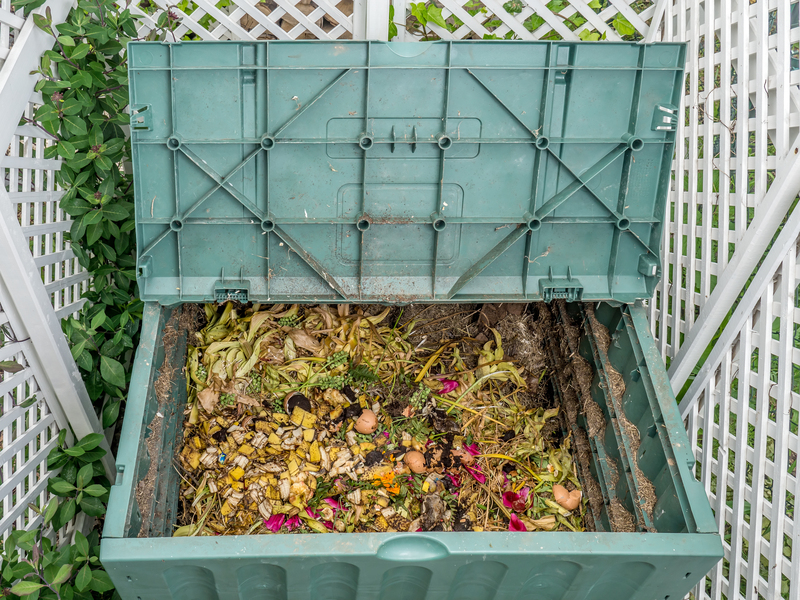How to Cut Costs When Disposing of Bulky Waste Items
Bulky waste items such as old sofas, mattresses, broken appliances, and unwanted furniture often pose a significant challenge for homeowners and businesses alike. Disposing of these large and heavy items can get expensive--especially if you opt for the most convenient route without exploring more budget-friendly options. Fortunately, there are several ways to reduce your expenses while responsibly getting rid of these cumbersome materials. In this comprehensive guide, we'll reveal practical tips and clever strategies to help you cut costs when disposing of bulky waste items so you can declutter your space without breaking the bank.
Understanding Bulky Waste Disposal Costs
Before diving into specific money-saving tips, it's important to understand why bulky waste disposal can be costly. The main factors that determine how much you'll pay include:
- Item size and weight
- Quantity of items
- Transportation requirements
- Local disposal fees and regulations
- Type of items (e.g., electronics, hazardous materials)
- Convenience or speed of service
By understanding these variables, you'll be better equipped to explore options that lower your bulky item disposal costs.

Assess What Needs Disposal and Prioritize
The first step to saving money is to determine exactly what you need removed. Start by sorting and listing everything you wish to discard. Ask yourself:
- Are any items still usable or repairable?
- Can large items be dismantled or reduced in size?
- Is there a way to group several items together for disposal?
A thorough assessment will help you avoid paying for unnecessary removal and may reveal cost-reducing alternatives.
Research Local Regulations and Free Services
Did you know that many municipalities offer free bulky waste pick-up days or low-cost disposal for residents? Contact your local council or sanitation department and ask about:
- Scheduled bulk waste collection days
- Permitted items and weight limits
- Fees (if any) for exceeding limits
- Drop-off locations or transfer stations
Taking advantage of these public waste collection services can result in significant savings, especially if you can plan your cleanout around these dates.
Reuse, Repurpose, or Donate Before Disposing
One of the most effective ways to minimize bulky waste disposal costs is to ensure items have no further use before tossing them. Consider the following alternatives first:
1. Donate to Charities or Nonprofits
- Many organizations accept gently used furniture, appliances, and mattresses.
- Some will pick up items for free at your home (schedule in advance).
- You may be eligible for a charitable tax deduction.
2. Sell or Give Away Online
- Post items on platforms like Craigslist, Facebook Marketplace, Freecycle, or OfferUp.
- List as 'free for pickup' to encourage quick removal--no disposal costs for you!
3. Repurpose or Upcycle
- Transform old doors or wooden furniture into garden planters or shelves.
- Use broken appliances for parts.
The more you can divert from the landfill, the less you'll pay--often, disposal cost can drop to zero!
Compare Disposal Options: Hire, Haul, or Rent
When personal reuse or donation aren't options, you'll need to physically remove the items. There are several ways to save money on bulky waste removal:
1. Do-It-Yourself (DIY) Drop-Off
- If you have access to a truck or trailer, haul your bulky items to a landfill or recycling centre yourself.
- Fees for residents are often much lower than hiring a full-service hauler.
- Ask about any special rates for recycling specific appliances.
2. Rent a Dumpster or Skip Bin
- Cost-effective for large or ongoing cleanouts.
- Choose the smallest size bin that fits your needs to avoid overpaying.
- Share the cost with neighbors if you all have bulky waste to remove.
3. Hire a Junk Removal Service
- Most convenient, but can be pricey--compare quotes from multiple providers.
- Ask about minimum load fees, charge per item vs. volume, and any potential discounts.
- Negotiate if you have only a few items; companies may group your job with others in your area for a lower rate.
4. Curbside Bulk Pickup
- Some waste collection companies offer scheduled bulk pickups as part of their regular service, often at discounted rates if booked in advance.
- Be sure to confirm what types of items are accepted and whether items need to be disassembled.
Take Apart Bulky Items to Reduce Disposal Costs
Many disposal services and landfills base their rates on the space your bulky item occupies. Disassembling large objects (like bookcases, bed frames or sectional sofas) can help you:
- Reduce the size and volume of the load
- Pay less if costs are calculated by cubic yard or meter
- Fit more items into a rented dumpster or vehicle
- Separate recyclable materials (like metals) that may be cheaper to drop off or even accepted for free
Tip: Use basic tools to break down furniture or appliances, separate components (wood, metal, plastic), and recycle what you can individually to save money.
Recycle for Free or Lower Fees
Many bulky waste items--from appliances to mattresses and electronics--may be eligible for free recycling or have much lower disposal fees than landfilling. Check the following options:
- Appliance recycling programs through utility companies or local governments
- Mattress and box spring recycling at specialized collection points
- Metal scrappers who collect old fridges, washers, and other white goods a no cost (sometimes they'll even pay you!)
- Electronics recycling at e-waste drop-off events or tech retailer take-backs
Always call ahead to verify accepted items, drop-off dates, and potential fees.
Bulk Up: Pool Resources With Neighbors or Communities
One way to slash your bulky waste disposal bills is to coordinate with neighbors or community groups. Here's how:
- Organize a neighborhood bulk pickup day and split the cost of hiring a company or dumpster rental.
- Join local online groups to see if anyone is arranging a group disposal event.
- Check with your homeowners association; they may already schedule annual or semi-annual bulk trash pickups for residents.
Pooling resources creates economies of scale--meaning everyone pays less than if they disposed of their items independently.
Avoid Extra Fees: Prepare Items Properly
Many companies and municipalities charge extra fees for improperly prepared or hard-to-handle bulky items. To avoid unwanted costs, always:
- Remove doors from refrigerators, freezers, and appliances for safety (as required by law in some areas).
- Dismantle furniture that won't fit through doors or into trucks easily.
- Drain fluids from lawnmowers, engines, or other machinery.
- Bag or wrap mattresses and sofas if requested, to prevent pest contamination.
- Label items correctly if there are multiple piles on the curb (donation vs. trash).
Proper preparation can save you from surcharges and re-handling fees and make the process smoother for everyone involved.
Seek Out Special Offers or Discounts
When using private junk removal or dumpster rental companies, don't be afraid to ask about special offers or discounts:
- Many companies offer online-only deals or coupon codes
- Senior, veteran, or student discounts may apply
- Seasonal promotions (e.g., spring cleaning or moving discounts)
- Referral discounts if you recommend their service to a friend or neighbor
- Discounted rates for scheduled, non-urgent pickups versus same-day service
Negotiating upfront could help you lower your final bill substantially.
Be Aware of Unscrupulous Operators
Cutting costs is great, but price should not come at the expense of responsible and legal disposal. Avoid the temptation to hire "cash-in-hand" operators who may illegally dump your items, exposing you to fines and legal trouble.
- Always ask for proper licenses and insurance
- Request a written quote and a waste transfer note or disposal receipt
- Look for companies with good reviews and proper credentials
Summary: Your Cheap Bulky Waste Disposal Checklist
- Assess items carefully--can you donate, sell, reuse, or recycle for free?
- Use municipal pick-ups and drop-offs when available
- Compare several disposal options before committing
- Disassemble items to reduce volume and qualify for lower rates
- Coordinate with neighbors to share costs
- Prepare items properly to avoid penalties
- Don't forget to search for discounts and negotiate

Frequently Asked Questions about Cutting Bulky Waste Disposal Costs
Q: What are the cheapest ways to dispose of bulky household items?
A: The most affordable methods include municipal free pickup or drop-off, donation to local charities, arranging swaps or giveaways, recycling at specialized centers, and doing the hauling yourself if you have transportation available.
Q: Are there items I cannot dispose of through regular bulk collection?
A: Yes. Items like hazardous chemicals, certain electronics, or construction debris may require special handling and can't go with regular bulky waste disposal services. Check local guidelines to avoid fines and extra fees.
Q: How can I save money if I need to use a junk removal service?
A: Get quotes from multiple providers, ask about minimum fees, seek out discounts, and schedule your pickup with others if possible. Disassemble and prepare your items to reduce the cost further.
Conclusion:
Disposing of bulky waste items inexpensively requires some research, planning, and effort, but the savings are well worth it. By taking advantage of free local services, reusing or donating what you can, preparing items correctly, and choosing the right removal method, you'll dramatically reduce the costs of getting rid of large, unwanted items. Remember to always dispose of your bulky waste responsibly and legally to protect your wallet, your neighborhood, and the environment.
If you're preparing for a big cleanout, bookmark this guide and share these cost-cutting tips for bulky item disposal with friends, family, and neighbors. Your wallet and your community will thank you!
